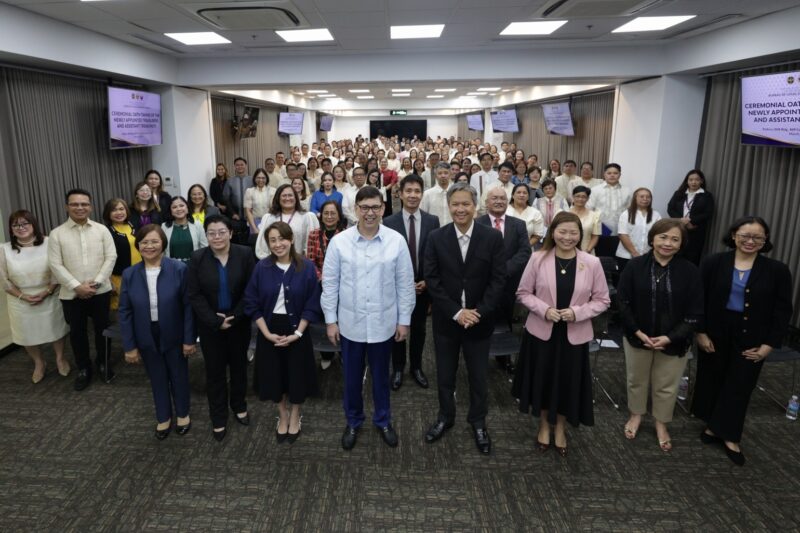Finance Secretary Ralph Recto on Wednesday justified the government’s move to utilize idle funds from the Philippine Health Insurance Corporation (PhilHealth) and other state-run firms, describing it as a “fiscally responsible Bayanihan 3” aimed at easing the national debt burden and accelerating economic recovery without imposing new taxes or securing additional loans.
Speaking before the Supreme Court during oral arguments held in this city, Recto framed the initiative as both practical and necessary as he underscored the scale of the economic challenges the country continues to face nearly four years after the COVID-19 pandemic triggered the worst postwar downturn.
“We’re still recovering from the pandemic that gave us the hardest economic blow—a contraction of 9.5% in 2020—the lowest since post-World War II,” Recto said.
He pointed out that when President Ferdinand Marcos Jr. assumed office in 2022, the national debt had already surged by P6.8 trillion.

“This surpasses the combined debt of all previous administrations, bringing our debt-to-GDP ratio from its lowest level of 39.6% in 2019 to a high of 60.9% in 2022,” Recto said.
“And now, it is our responsibility to repay these large borrowings. We inherited this debt, but we do not intend to simply pass this burden onto the next Administration. We intend to try our best to reduce it,” he pointed out.
Recto, a veteran economist and former lawmaker, said the Department of Finance is obligated to ensure that every peso is used efficiently and in service of the Filipino people.
“It is our duty to put every peso to work for the people. Hindi po pwede na kapag may nakitang malaking pondo na natutulog at hindi nagagamit para sa kapakanan ng taumbayan, hahayaan na lang. Sleeping funds serve no one. Every idle peso is a disservice to every Filipino,” he emphasized.
The country’s top finance manager revealed that in 2023, the government spent an average of P15.8 billion per day, P4.1 billion of which was financed through borrowings. “Kada bente-kwatro oras. This is the daily math of governance,” he said.
To address the country’s fiscal pressures, Recto said the government introduced a new iteration of the Bayanihan strategy, this time using dormant public funds rather than fresh loans or tax hikes.

“Just as what we did during the pandemic through Bayanihan 1 and 2, we see this as a Bayanihan 3—a Bayanihan 3 not funded by new taxes, but one funded by the funds already in our possession,” Recto said.
“A Bayanihan 3 that mobilizes all our available resources—all idle, excess, and sleeping public funds—to help the economy recover faster, create more jobs, increase incomes, and reduce poverty in the process,” he added.
He said the move aligns with the Marcos administration’s Medium-Term Fiscal Framework (MTFF), which aims to ensure long-term macroeconomic stability.
“This move to sweep the unused, excess, idle funds of GOCCs is in line with the principles of our [MTFF] to ensure the country’s macro-fiscal stability,” Recto explained. “And that is to consolidate all public resources so that these are mobilized and utilized to gain the maximum benefit and high multiplier effects for the economy and the Filipino people.”
He continued: “This Framework ensures that we reduce our fiscal deficit from a high of 8.6% to GDP in 2021 to only 3.7% in 2028. Last year, we already hit our target of reducing this to 5.7%. This will allow us to sustainably reduce our national government debt to 56.3% in 2028.”
Related Images:

Mindanaoan is a multi-awarded blogger, content creator, seasoned social media strategist and publicist with undeniably successful track record. Her content niches are lifestyle, travel, politics and events. 2012 International Visitor Leadership Program (for global leaders) alumnus and O visa grantee (for people with extraordinary skills and who have risen to the top of their field). Avid traveler and a proud relief operations volunteer. Regular resource person for social media, blogging and content creation. Available for work and travel – [email protected]

